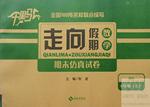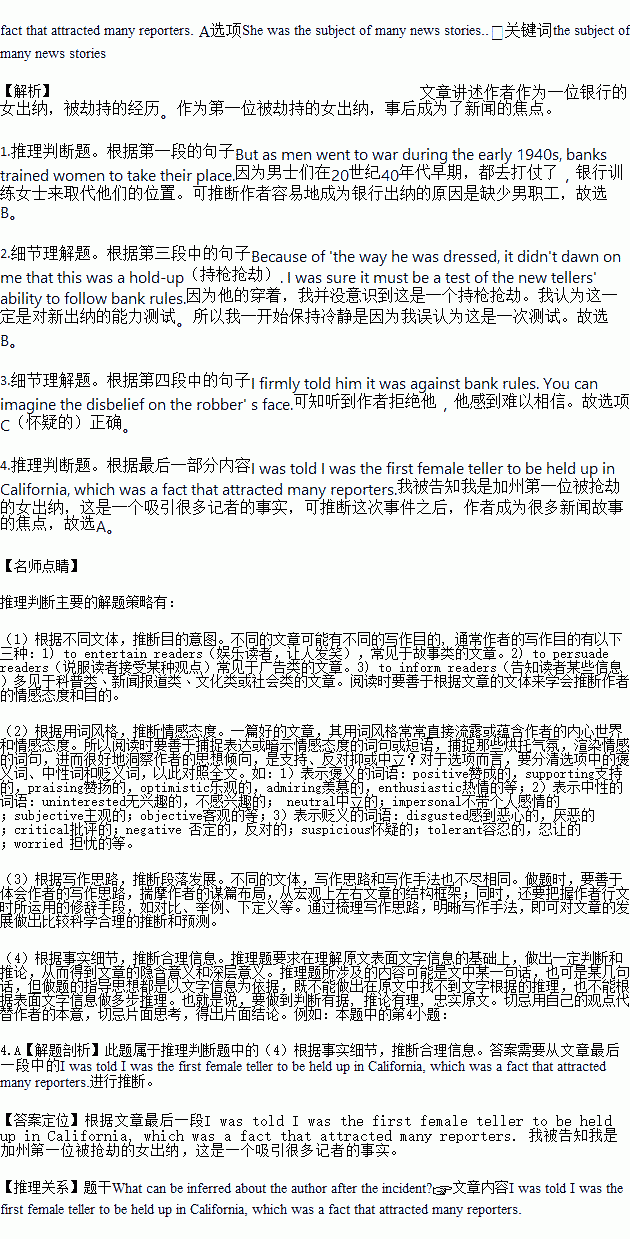题目内容
Before World War II,all bank tellers(出纳)were men. But as men went to war during the early 1940s, banks trained women to take their place. I was among 20 women selected by Bank of America to work as a teller at a small branch in Los Angeles.
November 23,1942 was a day I'll never forget when I was 22 years old and just two months on the job. When a well-dressed man in a suit, tie and hat came to my window. I greeted him with a friendly “Good afternoon.” But he shouted,“This is it!”
'The man placed a brown bag on the counter and said; "Fill it up.”Because of 'the way he was dressed, it didn't dawn on me that this was a hold-up(持枪抢劫). I was sure it must be a test of the new tellers' ability to follow bank rules. Eager to pass such a test, I coolly opened the bag, and then calmly filled it with marked bills.
“None of these!” the man shouted, insisting that I fill the bag with cash from another teller’s drawer. Well, that was a big no-no from training: You never touch another teller's cash! I firmly told him it was against bank rules. You can imagine the disbelief on the robber' s face. Other tellers later told me they couldn't believe I refused the robber's demands.
When the man told me to stand in front of the other staff along the wall, threatening to shoot me if anyone moved, I finally realized this was real. After the robber fled the bank, the manager got his gun and went after the robber but he failed to catch him. The robber was caught after another bank hold-up, and I was told I was the first female teller to be held up in California, which was a fact that attracted many reporters.
1.Why was it easy for the author to become a bank teller?
A. Females were thought responsible.
B. There was a lack of male workers.
C. She worked far better than men
D. Women could be trained easily.
2.Why did the author feel calm at the beginning of the incident?
A. She was well trained.
B. She took it for a test.
C. She knew the man had no gun with him.
D. She had experienced the same thing before.
3.How did the robber feel when he heard the author's words in Paragraph 4?
A. Worried. B. Disappointed.
C. Skeptical. D. Ashamed.
4.What can be inferred about the author after the incident?
A. She was the subject of many news stories.
B. She caught the robber in another hold-up.
C. She was to blame for losing money.
D. She succeed in changing her job.
 千里马走向假期期末仿真试卷寒假系列答案
千里马走向假期期末仿真试卷寒假系列答案| A. | questioned | B. | being questioned | ||
| C. | to be questioned | D. | having questioned |
| A. | persuaded | B. | would persuade | C. | had persuaded | D. | should persuade |

